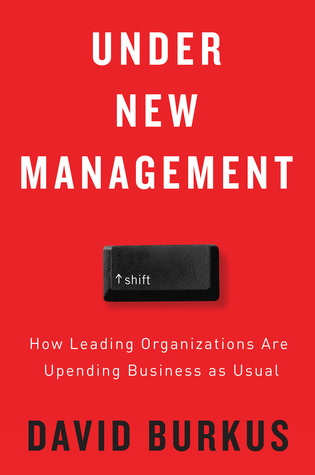
Under New Management
How Leading Organizations Are Upending Business as Usual
کتاب های مرتبط
- اطلاعات
- نقد و بررسی
- دیدگاه کاربران
نقد و بررسی

March 28, 2016
In this thought-provoking business book, Burkus, an associate professor of management at Oral Roberts University, asserts that many historical management practices are no longer relevant in today's workplace. In easily readable chapters, he challenges conventional thinking and offers "redesigned management tools," writing that they may "seem odd compared to business as usual, but the truth is that business isn't usual anymore." Burkus outlines the techniques some companies have introduced to lower stress and increase productivity, such as eliminating internal email, prioritizing employees over customers, allowing unlimited vacation time and employee-designed workspaces, and even doing away with bosses. He adds credibility to his suggestions with examples of leading companies such as Netflix, Starbucks, and Wegmans that have embraced management innovation. Berkus admits that the practices and policies profiled here won't work for everyone, but he intends the book's case studies to provide "validation for leaders everywhere to start experimenting." Managers looking for ways to engage their workforces and improve productivity will find Burkus's work a helpful guide.

February 15, 2016
Burkus (management, Oral Roberts Univ.) confirms that open-floor plans, annual performance reviews, and internal email might be doing more harm than good. This exploration of disruptive practices in personnel management considers 13 different approaches companies can take to change the way they interact with employees. Using examples from both established Fortune 500 companies and start-ups to show how innovative practices are improving satisfaction in the workplace, Burkus also explains why it makes sense from a management perspective that companies such as Zappos, Amazon, and Riot Games offer new employees monetary incentive to quit within the first month. He further outlines the rationales behind strategies such as making salaries public, offering unlimited vacation and parental leave, providing sabbaticals, rethinking organizational charts, and banning noncompete clauses. While the book ignores any potential downside to these methods, it provides a compelling argument on why employees--not customers or stockholders--should come first. VERDICT This recommended title will appeal to business readers seeking examples of companies that are harnessing the power of autonomy and transparency.--John Rodzvilla, Emerson Coll., Boston
Copyright 2016 Library Journal, LLC Used with permission.

























دیدگاه کاربران